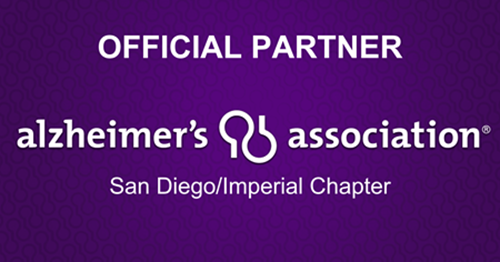November is Alzheimer's Awareness Month, a crucial time for shedding light on dementia-related issues, including Alzheimer's disease, and the crucial role of caregivers and home care in dementia management. In this article, we will explore recent developments in our comprehension of dementia, strategies for prevention, and effective management.
Advancements in Understanding Dementia
- Early Detection and Diagnosis:
Recent advancements have enhanced our ability to detect and diagnose dementia at an early stage, offering hope for better management and potentially slowing its progression. Biomarkers and advanced imaging techniques now allow for the identification of dementia-related changes in the brain before noticeable symptoms emerge. Early detection is crucial for effective intervention and support for caregivers.
For more information: https://www.alz.org/alzheimers-dementia/diagnosis - Genetic Research:
Genetic research is revolutionizing our understanding of dementia, particularly Alzheimer's disease. Several genes associated with a heightened risk of developing Alzheimer's have been identified. This genetic insight not only aids in early detection but also lays the foundation for personalized treatment approaches.
For more information: Biomarkers for Dementia Detection and Research - National Institutes of Health, How Biomarkers Help Diagnose Dementia - National Institute on Aging - National Institutes of Health - Brain Imaging:
Cutting-edge brain imaging technologies, such as PET and MRI scans, have provided critical insights into the brain changes associated with dementia. These imaging methods enable researchers to track the progression of the disease and develop more targeted treatment strategies, offering hope to caregivers and patients alike.
For more information: Imaging technique shows Alzheimer’s impact on brain connections - National Institutes of Health
Advancements in Dementia Prevention Strategies
- Lifestyle Interventions:
A healthy lifestyle is a powerful tool in reducing the risk of dementia. Regular physical exercise, a balanced diet, cognitive stimulation, and strong social engagement have all been shown to promote brain health. These strategies provide hope for preventing dementia and reducing the caregiving burden.
For more information: Alzheimer’s & Related Dementias: Lifestyle Interventions Research - National Institutes of Health - Brain-Boosting Foods:
Certain foods rich in antioxidants, omega-3 fatty acids, and essential nutrients, like berries, fatty fish, and leafy greens, are believed to support cognitive function and reduce dementia risk. Incorporating these foods into one's diet is a proactive step in dementia prevention, benefiting caregivers and patients alike.
For more information: https://www.health.harvard.edu/mind-and-mood/foods-linked-to-better-brainpower - Cognitive Training:
Cognitive training programs, designed to challenge the brain through various exercises and activities, can improve memory, attention, and problem-solving skills. Early engagement in cognitive training can be an effective strategy for preventing dementia, relieving caregivers' concerns.
For more information: MCI interventions aid patients and caregivers - Mayo Clinic
Advancements in Dementia Management and Treatment
- Drug Trials:
Recent developments in medication are offering hope for Alzheimer's patients and caregivers. While there is no cure yet, these drugs aim to slow down disease progression and improve cognitive function, providing much-needed support to caregivers at home. The latest updates on Alzheimer's drugs as of 2023 include significant advancements, particularly with two drugs: lecanemab (Leqembi) and donanemab.
Lecanemab (Leqembi):
- The U.S. Food and Drug Administration (FDA) approved lecanemab for people with mild Alzheimer's disease and mild cognitive impairment due to Alzheimer's disease.
- This drug has been granted accelerated approval status by the FDA, indicating its potential for significant impact in the treatment of Alzheimer's.
- A Phase 3 clinical trial of lecanemab showed that it slowed cognitive decline in people with early Alzheimer's disease.
- Eisai and Biogen announced positive top-line results for their anti-amyloid antibody lecanemab, making the trial the first successful, completed Phase 3 Alzheimer's drug study in the Western world in more than 20 years.
Donanemab:
- This is another promising drug that has shown efficacy in temporarily holding off mental decline caused by Alzheimer’s disease.
- A UCSF neurologist highlighted the trial results of donanemab, indicating the need for better and safer treatments despite its positive outcomes.
These developments represent a significant shift in the treatment and management of Alzheimer's disease, offering new hope where there has been little for patients. However, it's important to note that the search for more effective and safer treatments continues, as these drugs, while promising, are not a cure and are most effective in the early stages of the disease.
For more information:
Alzheimer's Treatments: What's on the Horizon? Mayo Clinic,
What to Know About Newly Approved Alzheimer's Drug - WebMD,
How Will Alzheimer’s Trials, Treatment Change in 2023 and Beyond? ALZForum,
New Alzheimer’s drugs are coming. Here’s what you need to know - ScienceNews,
Commentary: New Class of Drugs Shifts Momentum on Alzheimer’s - UCSF
- Non-Pharmacological Interventions:

Non-pharmacological approaches like cognitive-behavioral therapy and music therapy have demonstrated significant benefits in enhancing the quality of life for individuals with dementia. These therapies focus on symptom management, reducing agitation, and improving emotional well-being for both patients and their caregivers at home.
For more information: https://www.alz.org/alzheimers-dementia/treatments/alternative-treatments - Support for Caregivers:
Caregivers are the unsung heroes of dementia care. Currently, there are more than 11 million family members and friends across the country, providing care to more than 6 million Americans living with Alzheimer’s disease.
“Caring for a person with Alzheimer’s takes longer, lasts longer, is more personal and intrusive than most other diseases, and takes a heavy toll on the health of the caregivers themselves,” said Monica Moreno, senior director, care and support, Alzheimer’s Association. “During the course of the disease, caregiving tasks escalate and become more intensive. Alzheimer’s and dementia caregivers are often managing multiple conditions, including memory loss, comorbidities, loss of mobility, reduced communication skills and behavioral and personality changes.”
Across the country, 59% of dementia caregivers report high to very high emotional stress due to caregiving and 38% report high to very high physical stress due to caregiving. Seventy-four percent of dementia caregivers report they are “somewhat concerned” to “very concerned” about maintaining their own health since becoming a caregiver.
To help caregivers balance competing priorities while maintaining their overall health and well-being, the Alzheimer’s Association offers these tips:
- Find time for yourself. It’s normal to need a break from caregiving duties. No one can do it all by themselves. Consider taking advantage of respite care or help from family and friends to spend time doing something you enjoy.
- Become an educated caregiver. Understand the disease, its progression and accompanying behavioral and physical changes. Know resources in your community that can help.
- Build a support network. Organize friends and family who want to help provide care and support. Access local caregiver support groups or online communities such as ALZConnected to connect with other caregivers. If stress becomes overwhelming, seek professional help.
- Take care of yourself. Try to eat well, exercise and get plenty of rest. Making sure that you are healthy can help you be a better caregiver.
- Avoid caregiver burnout. Sustained caregiver stress can lead to caregiver burnout — a state of physical, emotional and mental exhaustion. The Alzheimer’s Association offers tips to help caregivers identify and avoid caregiver burnout.
- Accept changes. Eventually your loved one will need more intensive kinds of care. Research care options now so you are ready for the changes as they occur.
- Know you’re doing your best. It’s normal to lose patience or feel like your care may fall short sometimes. You’re doing the best you can. For support and encouragement, consider joining an online or in-person support group.
“As difficult as it may be, caregivers need to make their health and well-being an equal priority,” Moreno said. “Maintaining your health can help you be a better caregiver. No caregiver should face this disease alone. The Alzheimer’s Association is here to help.”
The Alzheimer’s Association provides local support and programs to families facing this devastating disease, including a 24/7 Helpline staffed by master’s level clinicians and specialists who are available 365 days a year and can help families navigate a variety of disease-related issues. Call 800.272.3900.
Additionally, caregivers can turn to a professional home care agency for support. Some home care agencies, like BrightStar Care of Carlsbad, specialize in working with dementia, providing services like companionship, supervision, socialization, cognitive stimulation, and more. These in home caregivers can come for a few hours up to 24/7, on a weekly or daily schedule, or just for occasional respite to give you a breather and time to focus on other aspects of your life.
For more information: Alzheimer’s Association Highlights Unique Challenges That Dementia Caregivers Face and Tips for Supporting Them
Conclusion
Alzheimer's Awareness Month serves as a reminder of the ongoing efforts to understand, prevent, and manage dementia. While there is still much work to be done, recent advancements in our comprehension of the disease, prevention strategies, and improved treatment and management options offer hope for a brighter future for individuals and families impacted by dementia.
As we raise awareness about Alzheimer's disease and other forms of dementia, let us also recognize the vital role caregivers play and the importance of home care in dementia management. Together, we can work toward a world where dementia is better understood, effectively prevented, compassionately managed, and where caregivers receive the support they need to provide the best possible care for their loved ones.
About The Author
Dan Sweiger is Co-owner and President of BrightStar Care of Carlsbad. He has a bachelor’s degree in communications, MBA, and 20+ years leading marketing and brand management in Fortune 500 companies. His passion is focusing the organization on a higher purpose to deliver something much more meaningful than just the products & services they sell. He supports the healthcare community through participating in The National Aging In Place Council https://ageinplace.org/), serving on the board of the San Diego Dementia Consortium (https://sddementia.org/), partnering with the Alzheimer's Association of San Diego (https://www.alz.org/) and Parkinson’s Association of San Diego (https://parkinsonsassociation.org/), leading educational workshops at the Carlsbad Senior Center (https://www.carlsbadca.gov/), and more.
About BrightStar Care of Carlsbad:
BrightStar Care of Carlsbad is the #1 rated home care agency in San Diego by Home Care Pulse. They offer a wide range of in-home support services, including companion care, personal care and skilled nursing. They also specialize in care for people with Parkinson’s and dementia. Because BrightStar caregivers are trained and supported by a RN Nursing Director who watches over our clients and staff – something extremely rare for home care companies -- they can provide early detection and intervention when medical issues arise. In fact, BrightStar clients are 25% less likely to be hospitalized compared to clients of other home care companies.

